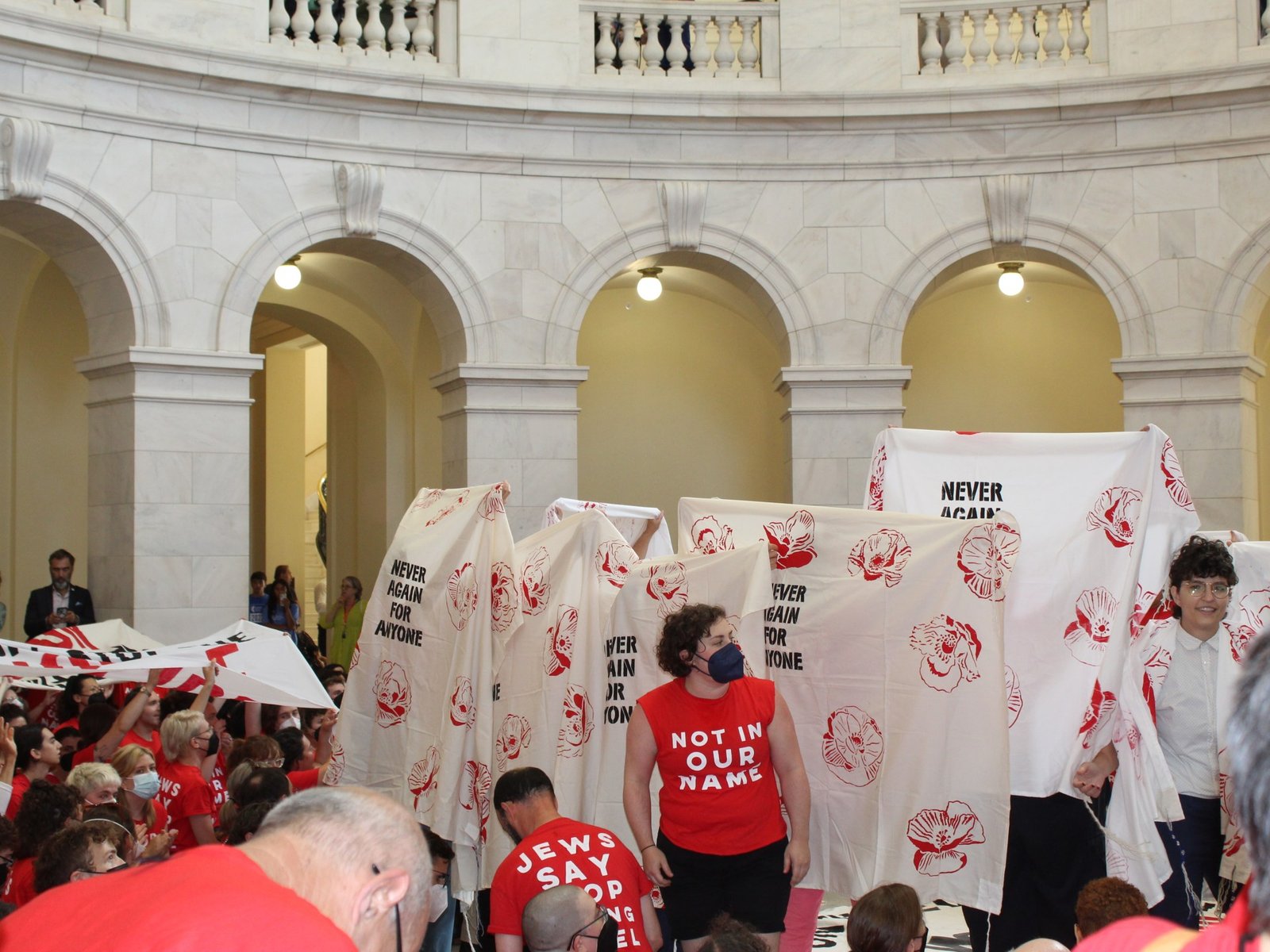Holocaust Museum LA Responds to Backlash Over Controversial Post
The Holocaust Museum in Los Angeles is under fire following the deletion of an Instagram post that implied the phrase “never again” should extend beyond the Jewish experience to encompass all humanity. The post—viewed by the museum’s 24,200 followers—stated, “Never again can’t only mean never again for Jews,” referencing a phrase long tied to Holocaust remembrance that advocates for the prevention of future genocides.
Initially, the post was well-received by many online, viewed by some as a recognition of the suffering of Palestinians amid the ongoing conflict in Gaza, which multiple United Nations experts and human rights organizations have classified as genocide. However, it was soon taken down and replaced with a statement claiming that the original message was misinterpreted.
In their follow-up, the museum stated, “This was part of a planned campaign to promote inclusivity and community, but it was misinterpreted by some as a political statement regarding the situation in the Middle East. That was not our intention.” They committed to improving their future communications to avoid similar misunderstandings.
Currently undergoing renovations slated to finish by June 2026, the museum faced swift backlash after journalist Ryan Grim shared a screenshot of the deleted post, declaring himself “speechless.” Human rights attorney Yasmine Taeb criticized the museum’s action as “absolutely disgusting,” asserting that it exemplified capitulation to pro-Israel pressure.
“Numerous genocide scholars and organizations affirm that Israel’s actions in Gaza meet the textbook definition of genocide,” Taeb told Al Jazeera. “It’s shocking that a museum dedicated to educating people about genocides would shy away from acknowledging the realities of the situation.”
While the original post did not specifically reference Gaza, it garnered significant criticism from pro-Israel commentators, some of whom called for donors to withdraw their support from the museum. By retracting the post, the museum faced accusations of forsaking a universal stance against genocide.
Commentator Amer Zahr remarked, “In today’s world, it’s alarming that a Holocaust museum feels the need to apologize for appearing to empathize with Palestinians. This clearly highlights the ongoing dehumanization faced by Arab Americans.”
Assal Rad, a researcher at the Arab Center for Washington DC, called the situation “unbelievable,” noting that Palestinians seem excluded from the ethos of “never again.” Political analyst Hasan Piker also criticized the museum, expressing disappointment that a simple anti-genocide statement faced such resistance.
As the museum navigates this complex landscape, it has not yet issued further comments regarding the situation.

